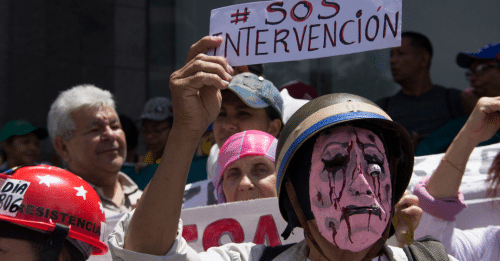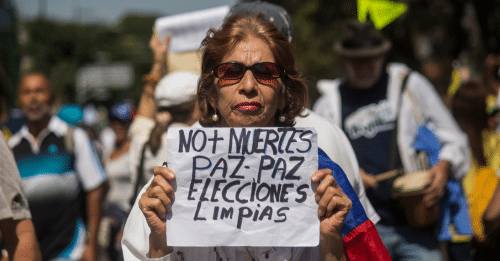“No Sabo” is a Slur, Fight Me On It
In this guest piece, Ashley Rivera Mercado explores why “no sabo” needs to be retired from the Latine vocabulary.

If you’re anything like me, you consider yourself “byelingual,” you speak English, you speak Spanish, but you occasionally fumble through anything from words and phrases to feminine/masculine terms in both languages.
Normally this occurs simply because I’m constantly changing the language I speak on a daily basis. As someone born in Puerto Rico but raised primarily in the U.S., I was fortunate enough to have parents who steadily enforced the rule of speaking strictly Spanish at home since my mom reasoned that schools would teach me English anyways. Because of this, I was spared from being put in the “no sabo” camp. Fast forward to life now, I’m grateful mami always took the initiative to enable me to be bilingual, since having the ability to speak Spanish has made all the difference in my life.
This, however, isn’t true for many Latinos living in the United States. The number of children that speak another language at home has risen since the ‘90s, and though that number was much lower than it is today, during the time that many families immigrated to the U.S. (the ‘80s to the late ‘90s), it wasn’t common to maintain your native language. In fact, bilingual numbers saw a drastic jump between 1995 and 2000, then we saw a steady increase that continues through today.
This period of migration that took place during the ‘80s and late ‘90s also normalized the pressure to assimilate into American culture at the time. With a conservative Republican president at the helm of immigration reform that resulted in the legalization of an estimated 3 million undocumented immigrants, the push to learn English and learn it well was alive and true.
The country was also just coming out of highly charged and overtly racist times, having just gone through the Civil Rights era of the 60s and 70s.
Thus, the natural byproduct of these turbulent times was to not pass down Spanish language skills to your children. Some parents did this in order to spare their children from racism while also working to give them a leg up with improved English skills. First-generation immigrants at this time also justified the decision to not teach their kids Spanish-language skills based on their own lived experiences due to being judged for their accents and ridiculed for struggling academically, a direct result of dual language learning not yet being implemented into the education system.
Years later, we’re seeing the effects of this choice.
Though a selfless act from our parents in theory, many first and second-generation kids raised without learning Spanish are constantly mocked for not knowing the language. This is especially cruel knowing that most times it wasn’t their fault, yet they are looked down upon for a choice their parents made – a choice that was made with the best of intentions. It’s common to see these adult children trying to learn Spanish and often feeling rejected by their community for not speaking Spanish, leaving them alienated from their Latino heritage.
In part, Urban Dictionary defines “no sabo,” as a term “used for people of Hispanic/Latino descent that don’t know, or barely speak Spanish.” From the way the term is used in social media, it’s clear that the label is meant to be derogatory. This begs the very simple question: why would any fellow Latino slam the door shut in spaces that we could instead be used to welcome and educate people who were ostracized from their heritage and culture?
The Latine community requires a massive reckoning with the diversity that exists across U.S.-based Latinos who share many cultural practices but don’t have a unifying identity. As we grapple with the broad spectrum of “Latinidad,” just as white and white-presenting Latinos don’t appreciate being called “gringa,” or any Latino, regardless of skin color, appreciates being accused of “talking white,” we can’t declare non-Spanish or poorly-speaking Spanish-speakers as less than simply because they lack or haven’t mastered the Spanish language.
Given that many Latine icons didn’t speak Spanish or barely spoke Spanish (Selena Quintanilla is just one example), this is a testament to how bilingual skills shouldn’t act as the sole unifying factor that many in the Latine community use to define themselves. In fact, it’s refreshing to see how many in the Latine community are leaning into their non-bilingual status while also confidently living in their Latine identity.
Latino and Latine identity is complicated, but instead of making it a point to exclude or criticize those who struggle with Spanish, we need to continue to reevaluate what we believe makes us Latine. There are many other factors to consider, including things like culture, lifestyle, traditions, race, and various languages (contrary to popular belief, many other languages are spoken in Latin America, including Mayan, Portuguese, and Quechua), and all of these things will overlap to various degrees.
While we may still have plenty of work ahead to further define and understand what it means to be Latine, what’s abundantly clear is that “no sabo” needs to be promptly retired from casual conversations and recategorized as the slur that it is.




